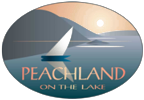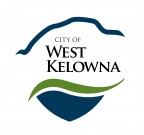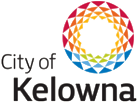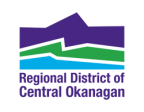McDougall Creek Wildfire transitions to recovery
Central Okanagan, B.C. – Returning home after a wildfire can be stressful, but there are resources and subject experts available to help you navigate through the process. Your safe return to your neighbourhood is a priority and a Returning Home Guide was developed to give you the information you need to move forward.
Residents affected by the McDougall Creek wildfire from partial to complete loss of properties are able to access support through the Resiliency Centre. Case workers at the Resiliency Centre are trained to help understand the needs of community members affected and help provide individualized supports.
The Resiliency Centre located at 403 – 3031 Louie Drive, serves as an important single-point of contact to provide supports and information from a variety of government and non-governmental organizations and agencies. Representatives from the insurance industry, building advisory, mental health supports, Red Cross, Service Canada, Service B.C. and First Nations’ Emergency Services Society of BC, Samaritan’s Purse and Emergency Support Services are there to help navigate recovery after a wildfire.
Residents are encouraged to access the services of the Resiliency Centre:
- 403 - 3031 Louie Drive, Governor’s Landing, Westbank First Nation
- Updated hours: Monday to Friday 9 a.m. to 4 p.m., Saturday 10 a.m. to 2 p.m. and closed on Sunday
- Phone - 250-469-6327
- Email - resiliency.centre@rdco.com
Frequently asked questions and other resources to aid in safe return can be found at cordemergency.ca/resources.
- Recover after a wildfire (Province of BC)
- What do to after a fire insurance tips
- Interior Health wildfire resources
Ruined fridges and freezers
A program dedicated to wildfire impacted homes to support the collection of ruined fridges and freezers is scheduled to conclude on September 30, 2023. Most residents are returning to homes that have been without power for an extended period. It is recommended that they consult with their insurers about how to manage spoiled food, fridges and freezers before they begin to discard items or appliances.
The Emergency Operations Centre (EOC) offers curbside pickup of ruined fridges and freezers. Takes these steps for fridge and freezer curbside pick-up:
- Email: info@rapidresponseind.com to schedule a pick-up.
- Do not open fridge and seal with duct tape prior to moving.
- Move appliances from your home and place on curbside or driveway by 8 a.m. on the scheduled day of pick-up.
To reduce wildlife conflicts in neighbourhoods, resident should not put fridges or freezers outside until just before scheduled collection time.
Requests submitted before 4 p.m. will be picked up the following day before 4 p.m. Requests after 4 p.m. are subject to 24-hour delay of pick-up. Special requests with extenuating circumstances can contact (956) 302-6611 to facilitate pick-up for residents with mobility challenges.
Currently the EOC is working on a salvage plan to manage burnt logs, stumps and trees. Non-structural debris may be brought to the landfill or transfer stations and managed as demolition debris. Recoverable items and mandatory recyclables such as scrap metal, concrete and asphalt must still be separated. More information is available in the Returning Home Guide under the Garbage Disposal section and FAQs on waster disposal.
Water quality
Wildfires can affect water systems and impact water quality. Private water systems in the area have varying degrees of damage due to the wildfire. Depending on the status of drinking water, residents may want to bring clean drinking water with them when returning home. Residents are advised to follow up with their water supplier for more information. If you are unsure who your water supplier is, visit drinkingwaterforeveryone.ca/advisorymap
If you are on a public water utility system, check with your water provider directly for water quality notifications.
Wildlife
Be aware that animals may have taken shelter near your home, garage or outbuildings. Leaving a door open will allow animals to return to their natural surroundings on their own. Wildfire has significant impact on natural food sources available. Use caution when disposing of garbage as it can attract bears and other wildlife leading to human-wildlife conflicts.
If you encounter an animal that appears injured or unwilling to leave, call the B.C. Conservation Office at 1-877-952-7277.
If you find dead wildlife on your property, you are responsible for removal. If it is on public property, contact your local municipality of Westbank First Nation to report it.
Wildfire-affected public and private property
As residents begin to return to areas impacted by wildfires, it is important to remember to respect the privacy of others on neighbouring properties and to refrain from trespassing. Additionally, public areas such as parks and Crown Land may be closed for safety reasons due to danger trees or other hazardous conditions.
Active restoration work is currently underway. This includes removal of damaged trees, slope assessments and removing other hazards from public lands and rights-of-way to make the areas safe for residents to return. It is crucial that everyone adheres to these closures to ensure the well-being of residents.
Slope stability
The province is conducting a post-wildfire natural hazards risk analysis, which looks at changes in vegetation and surface conditions that may increase the probability of slope instability and it is important for residents living on or adjacent to wildfire-affected properties and waterways monitor for irregularities, particularly during a rainfall event. Vegetation is an important factor in absorption of rainfall and melting snow. The rate of erosion declines with time but may last between 3 to 10 years depending on several factors.
Get to know your terrain and waterways. The best way to prepare is to be aware of changes that could signal a landslide. These may include:
- Sudden changes in stream flow.
- Rapid changes or pulses in flow (e.g. changes in volume) or pulses of sediment (e.g. from clear to murky).
- Abnormally dirty water.
- Accumulation of large logs or debris.
- Rapid accumulation of sediment or bed-load along a flat section of a creek channel.
- Tension cracks near the top of the slope.
- Falling rocks or boulders or flowing or sliding soil. This may precede a much larger landslide.
- To report landslide or debris flow indicators, call the 24-hour provincial toll-free number at 1-800-663-3456 or contact your local fire, RCMP or public works department.
Learn more about landslide preparedness at PreparedBC.
Area restrictions
BC Wildfire Service wildfire Area Restriction Order remains in force until 12 p.m. on October 3, 2023 or until the Order is rescinded. Bear Creek Provincial Park remains closed to the public. Please avoid entering Bear Creek Provincial Park from both the main entrance on Westside Road as well as from the waterfront onto the beach.
Visit the BC Wildfire Service website for McDougall Creek Wildfire incident information.
Subscribe for e-news updates
As we move further into the recovery phase for the communities in the Central Okanagan and the Emergency Operations Centre winds down, subscribe to updates at rdco.com/subscribe and select McDougall Creek Recovery eNewsletter – Corporate.
During an active emergency, residents are encouraged to stay up to date through cordemergency.ca and subscribe to receive e-updates directly to your inbox.
For municipal and local government information such as garbage collection and transfer station hours, water restrictions, boat launch, park and road closures, visit:
Visit us:







